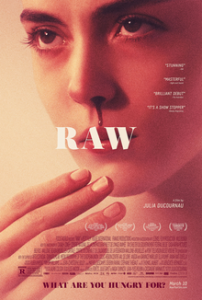The writers of BBC America’s Orphan Black, have thus-far been relatively good at balancing plausible against implausible over the life of the story, but the opening scene of episode three shows a pretty poor set of decisions by apparently switched-on characters. Either Felix (Jordan Gavaris) and Sarah (Tatiana Maslany) have been into clone sister Alison’s stash of bath salts, or the writer (Chris Roberts) has painted himself into a corner.
Unfortunately it’s the latter.
Now, if the characters had just called the cops like anyone else upon discovering a body full of holes, this clunky plot could have been avoided. They didn’t shoot Castor clone Seth (Ari Millen), and gunshot residue, fingerprints on the gun, and questioning would prove this.
Instead what we have is a poor attempt to dispose of the body in the bathtub, which harks back to Breaking Bad, and of course, discovery by the law in the shape of the long-suffering Detective Bell (Kevin Hanchart). Bell is compromised as a police officer, and wanting to support Sarah, he looks the other way.
In this single scene, relatively well drawn, intelligent characters are turned into bumbling idiots.
Well, perhaps everyone has to have an off day?
And the painted corner of plot? Well it’s a mix of timing and plot actually; to keep things moving, Sarah is needed on the road with Art, rather than being questioned over the death, and clone Cosima has better use for the body than an autopsy and cremation. She might have a way to determine the issue with the Castor clones. For this she needs Seth’s brain. Good thing he’s not using it anymore. She turns out to be far more capable in the blood and gore department than her new offsider, Scott (Josh Vokey) who spends the operation puking into a bucket.
Speaking of Cosima, she’s the standard bearer in the series for LGBTI visibility, being an out lesbian character. Her lover is — or was, after events in Orphan Black S03E01 — Delphine (Evelyne Brochu), and the two scientists were portrayed as a sincere, capable and intelligent couple, without writers relying on tons of shagging, frills and heels, and girly talk to prove their feminine credentials.
Orphan Black has gained an enviable reputation in this area, with queer characters who aren’t just there to be exploited for the purposes of the plot, either as prostitutes or victims of crime. Brother Felix is a well-rounded individual, an artist and moral centre of Sarah’s life, not just a man who can’t keep his tadger in his trousers (though there are gentle, humourous moments of that in season one). Hell, there’s even been a Transgender clone, Tony Sawicki who made an appearance last season.
Writers and creators Graeme Manson and John Fawcett have already broken ground with a complex and interesting sci-fi plot about cloning, yet adding strong queer characters in a science fiction setting makes the series truly unique.
And on the subject of “unique”, clone Helena appears to be stuck in a BBC quarry (the trope that BBC Science fiction shows were shot in the same location, standing-in for alien worlds). A few mounds of sand here and there, and Viola! Orphan Black has the Middle East on a budget!
All is not well for the Castor clones. Dr. Coady (Kyra Harper) hasn’t got a cure for their condition and her bosses are after a meeting. She sends Paul (Dylan Bruce) to stall for time while she seeks-out the original clone genome she hopes will cure her boys, for there are now only two: Rudi — who’s come home to momma — and Mark, who’s done a runner with pregnant Proletarian daughter, Gracie Johanssen (Zoé De Grand Maison). Gracie puts on a creepy turn to retrieve some of her fathers belongings from Willard Finch (Nicholas Campbell) but then Sarah catches up with her and tears her world down.
But wait, there’s more! But you’ll have to watch the episode for that!
Orphan Black is airing on SBS and Netflix Australia.






1 Comment